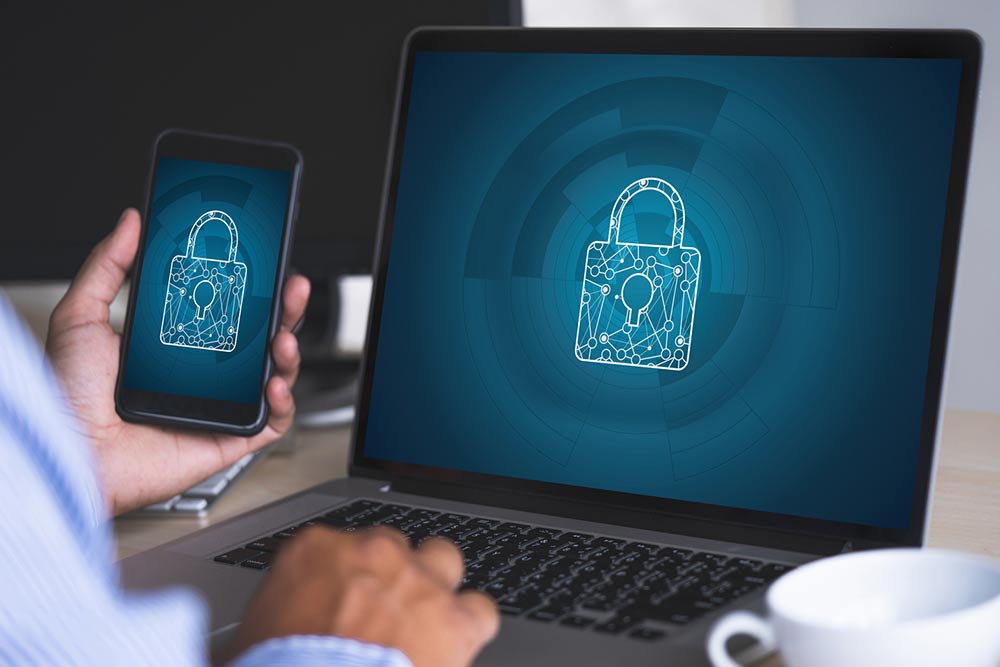7 common cyber security mistakes to avoid

Cyber attacks are becoming increasingly common and can occur in different ways, including hacking, phishing e-mails, and virus-infected files. Many people are unfamiliar with cyberspace; they are falling prey to numerous cyber crimes and other online malpractices. Therefore, it is important to prioritize cyber security. Likewise, it is also essential to stay away from common cyber security mistakes in order to keep the accounts and private information safe. Read on to learn more about them.
Setting an easy password
Imagine having a safe that contains a million dollars and all the important documents, but you secure it with a fragile lock. That is exactly how it would be if you set an easy password to any of your online accounts. Your personal information could be at risk, especially if you use an e-mail account linked to your bank account. People often tend to set simple passwords so they can remember them, but this makes their accounts vulnerable to cyber-attacks. Some commonly used easy passwords include a simple number series (like 123456), the word “password,” and even birthdays. None of these are recommended. To be on a safer side, it is recommended that you set a password comprising a combination of numbers, letters, and special characters. If you find it difficult to remember passwords, you can also use a password manager to securely store all your passwords.
Using public Wi-Fi without a VPN
Public Wi-Fi networks are accessible open Wi-Fi networks that are usually available in public places like airports and cafes. While these networks are set up by the establishment to provide public convenience, they also pose a substantial risk to the users. As public Wi-Fi networks are open to all, hackers and cyber-attackers can easily connect to them and quickly gain access to the information of other users connected to the Wi-Fi network. Therefore, it is highly recommended to always use a virtual private network (VPN) when using such public networks. A VPN encrypts the data and makes it nearly impossible for a cyber-attacker to read it. If using a VPN is not possible, it is best to limit oneself to casual browsing when using public Wi-Fi. Activities such as accessing the bank account, making payments, etc., must be avoided on public Wi-Fi.
Ignoring software updates
Software update notifications can be quite bothersome, and many users tend to ignore or postpone the updates altogether. While you can postpone the software updates for some other time, completely neglecting them can have negative consequences on the system or application’s functionality. Software updates fix bugs and, most importantly, improve security features, which is crucial for the operating system. So, if one disregards these updates and never lets them come through, it may weaken their system’s security, making them vulnerable to cyber-attacks.
Not taking regular backups
One can never predict when or how cyber-attackers can infiltrate and breach their system. Even with good antivirus software, malware or a cyber attacker can manage and crack the system, causing data loss or identity theft. Therefore, it is always better to be safe than sorry by backing up data regularly. A reliable cloud storage software can be used to store and back up all data. Alternatively, an external hard disk can be used to take regular backups. Regardless of the method used, having backups is crucial to stay prepared for any worst-case scenario.
Clicking on suspicious links
Phishing e-mails are one of the most common ways for cyber attackers to target individuals. These e-mails often carry a suspicious link that, when clicked on, can allow cyber-attackers to gain access to personal data or install malware on their system. Therefore, it is important to always be cautious when receiving such e-mails and avoid opening links from questionable sources. Additionally, one must also be wary of visiting illegitimate websites or downloading any files from them. To determine if a website is secure for use, always look for a closed lock symbol at the top-left corner of the URL bar. If it shows a closed lock symbol or if the URL begins with “https,” the site is secure. An open lock symbol or “http” at the beginning of the URL indicates the site is not secure.
Not using two-factor authentication
Many websites provide an additional security feature called the 2FA or the 2-factor authentication during the login process. This feature adds an extra layer of security to ensure that only authorized users have access to their accounts. Most of the time, it involves sending a verification code to the authorized user. Although it may seem like a minor inconvenience, this extra step is essential in safeguarding the account against illegal cyber activities and unauthorized access.
Using the same password everywhere
Another mistake that many people often make is setting the same password for all their accounts to avoid forgetting them. However, this can prove to be extremely dangerous for the individual as if a cyber attacker gets hold of this password, they can easily access all the accounts and private information within seconds. Therefore, it is recommended to create different passwords with various combinations and manage them by using a password manager.









